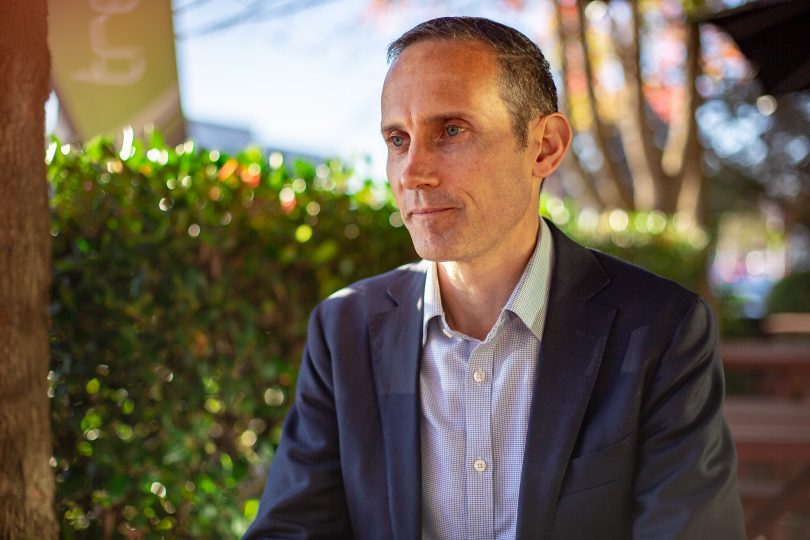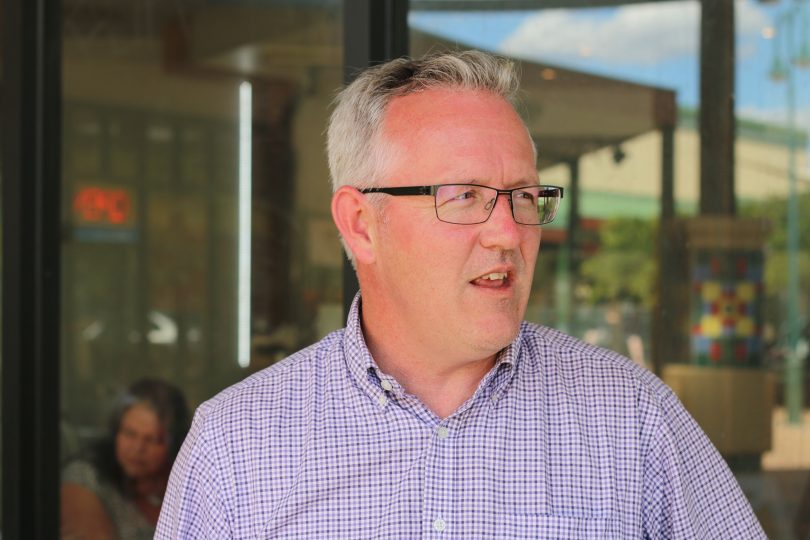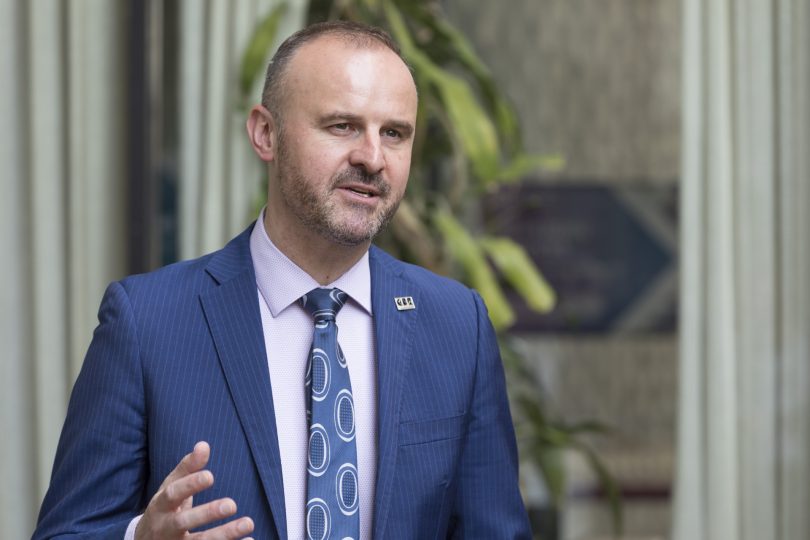
Dr Andrew Leigh is trying to amend the ACT Self-Government Act to allow ACT Policing to be covered by the Territory’s Integrity Commission. Photo: George Tsotsos.
Despite tri-partisan support in the ACT Legislative Assembly, a push by Federal Labor to amend the Self-Government Act to allow oversight of ACT Policing in the Territory’s new Integrity Commission is set to fail.
The federal member for the ACT seat of Fenner, Dr Andrew Leigh, proposed the bill in Parliament yesterday (24 February). It was seconded by the Member for Bean, David Smith.
The private member’s bill would not explicitly include ACT Policing within the jurisdiction of the ACT Integrity Commission, but would give the territory the legal authority to introduce the new laws themselves.
Dr Leigh said the bill would bring the ACT in line with other states. He attacked the Federal Government for their stance on accountability and transparency.
“In the ACT, as in the rest of Australia, the public has the right to trust that their public officials can stand up to justified scrutiny,” he told the Parliament on Monday morning.
“[This private member’s bill] amends the ACT Self-Government Act so the ACT Integrity Commission is able to cover the police. This ensures that policing services provided in the ACT have the appropriate integrity oversight which Territorians would expect to exist.
“This is not possible within the scope of the [self-]government act as it presently stands.”
Although the ACT Integrity Commission started receiving reports from December last year – after passing the Assembly with tri-partisan support in 2018 – it does not have the jurisdiction to investigate federal bodies.
With ACT Policing being a contracted part of the Australian Federal Police, they are exempt from the territory’s commission.
Mr Smith said Dr Leigh’s bill would help foster better rapport between the police and Territorians.
“Territorians deserve to see their police force overseen by their integrity bodies,” he said. “It will promote a high level of transparency and a better relationship between Canberrans and their police force.”

Federal member for Bean, David Smith, wants to expand the territory’s Integrity Commission to encompass ACT Police. Photo: Dominic Giannini.
However, the bill is likely to fail, with Prime Minister Scott Morrison and Federal Attorney-General Christian Porter rejecting the amendments as impractical and problematic.
“It is neither necessary nor desirable for ACT Policing to be overseen by the ACT Integrity Commission,” Mr Porter said.
“The AFP is already subject to robust internal and external integrity mechanisms and safeguards. Any delineation between ACT Policing and the broader AFP would be legally and practically problematic.”
Dr Leigh said that a comprehensive Memorandum of Understanding could be put in place between the ACT’s Integrity Commission and the Australian Commission for Law Enforcement Integrity to make sure that cases would not overlap or be pursued twice.
“Canberrans support this Parliament, and yet it is Canberrans who constantly find this Parliament stands in their way,” he said.
He also made it clear that it would not be a prosecutorial body, and it would refer any findings to the relevant prosecutor.

Chief Minister Andrew Barr says the entire Legislative Assembly supports including ACT Policing within the bounds of the territory’s Integrity Commission. Photo: File.
Chief Minister Andrew Barr said the ACT Government supports Dr Leigh’s proposal.
“The inclusion of ACT Policing within the scope of ACT Integrity Commission has the tri-partisan support of the Legislative Assembly,” he told Region Media.
“Labor wants it, the Greens want it and the Liberals want it. This Private Member’s Bill being introduced today by Andrew Leigh will amend the ACT Self-Government Act to allow this to happen.”
The bill has been presented in the context of a concerted effort by both the ACT Government and the Canberra Liberals for greater self-governing powers, specifically around the issue of euthanasia.
Both Chief Minister Andrew Barr and Liberal leader Alistair Coe have called for the territory to be given the power to legislate and debate the issue within the Assembly, in line with other Australian states.
Dr Leigh called it “unconscionable” that the ACT is still prohibited from legislating on euthanasia.















